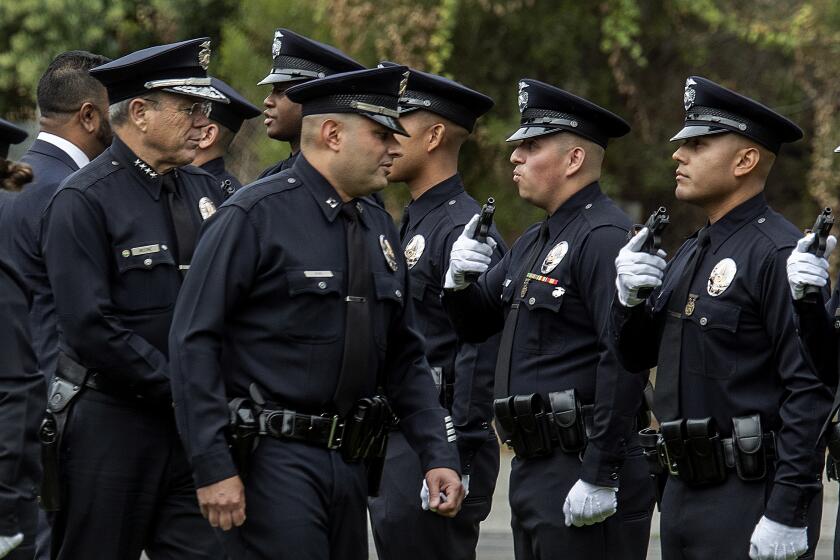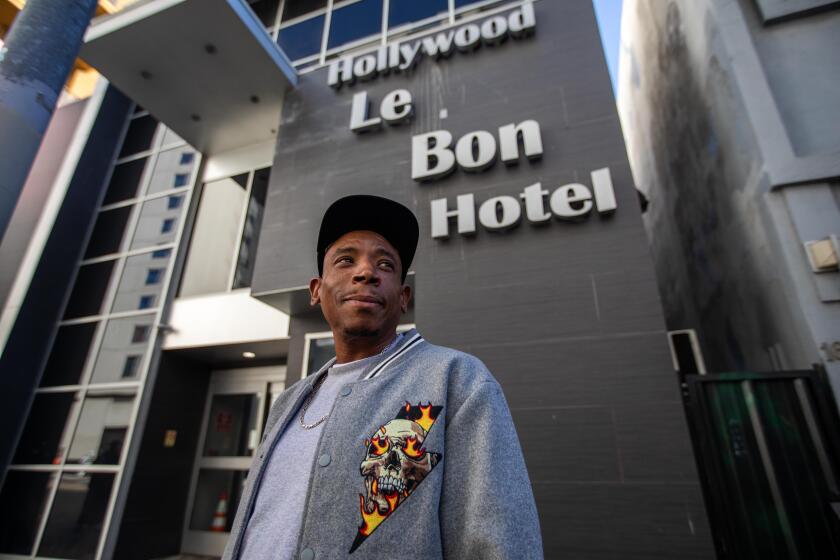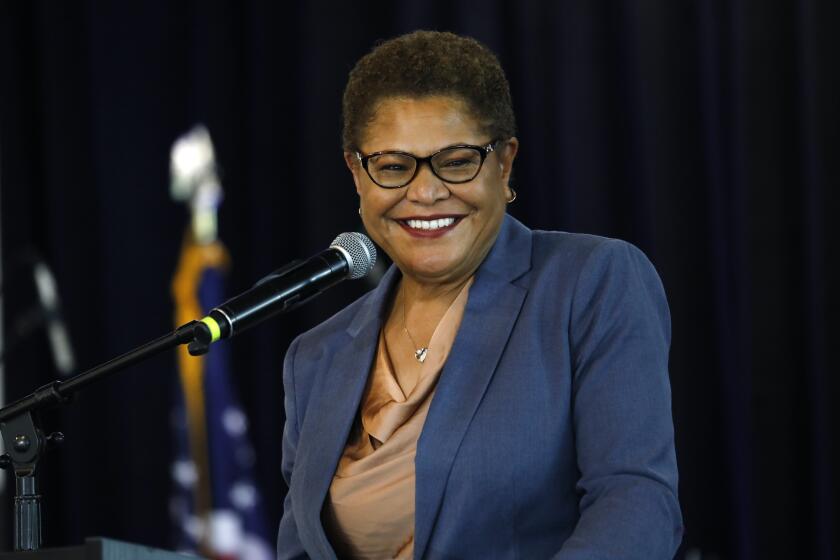Burgos, a resident of North Hollywood, is a licensed optician — she describes herself as an essential healthcare worker — and co-owner of a murder mystery theater company called Dainty Dames Events. She grew up in Ohio and received a degree in theater and forensic anthropology from Ohio State University.
Since 2021, Burgos has served on the NoHo Neighborhood Council, working to provide $5,000 grants for such groups as Polo’s Pantry, a food assistance program, and NoHo Home Alliance, which provides meals, showers and other services for homeless residents.
Burgos says she’s looking to expand the bloc of “super-progressives” who have been pushing the council to the left. She has been endorsed by City Controller Kenneth Mejia and a number of left-of-center groups, including the L.A. chapter of the Democratic Socialists of America, Ground Game LA and the California Working Families Party.
“Right now, currently, the Valley is just surviving, as is a lot of Los Angeles — just barely surviving and fighting for everything that they can, tooth and nail,” she told LA Progressive earlier this year.
Nazarian also lives in North Hollywood. His Armenian family fled Iran when he was 8, eventually making it to the U.S. He spent six years as Krekorian’s chief of staff — first in Sacramento when Krekorian was in the state Assembly, then at City Hall. Nazarian won his own Assembly seat in 2012, and represented much of the eastern San Fernando Valley for a decade.
Nazarian has a bachelor’s degree in economics from UCLA. As an Assembly member, he focused on issues such as healthcare, public transit and education, and worked to create and expand programs to help children save for college. He also supported efforts to create a universal single-payer state healthcare system, which were defeated.
He has been endorsed by an array of big-name California politicians, including U.S. Sen. Alex Padilla, Rep. Adam B. Schiff, Atty. Gen. Rob Bonta and Los Angeles County Supervisor Lindsey Horvath. He is also backed by the Los Angeles County Federation of Labor, the hotel workers union Unite Here Local 11 and Service Employees International Union Local 721, which represents thousands of city workers.
Nazarian, who is also endorsed by Krekorian, said he wants to ensure that L.A. is a well-functioning city.
“I want to make sure the middle class always feels welcome. I want businesses to invest in this city. I want to make sure younger families are not moving to other parts of the region but want to raise their kids here in Los Angeles,” he told The Times.





























